Fertility
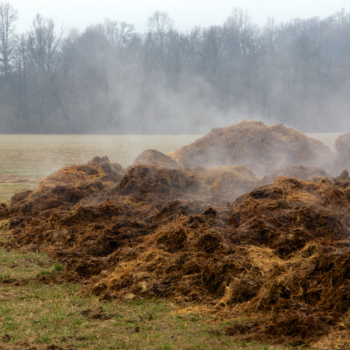 Having the right nutrients available in the right amounts at the right time is critical to plant productivity. Being able to provide plants with nutrients in a manner that does not deplete the soil but actually builds soil health is not only possible, but necessary in order to be sustainable.
Having the right nutrients available in the right amounts at the right time is critical to plant productivity. Being able to provide plants with nutrients in a manner that does not deplete the soil but actually builds soil health is not only possible, but necessary in order to be sustainable.
Finding cost-effective ways to do this is important for farm profitability. Making sure producers do not cause downstream pollution in the form of nutrient runoff is also part of the balancing act. Composts, manures, cover cropping, biochar, and other nutrient inputs can all be a part of regenerative nutrient management. The practical ATTRA resources in this section can help crop and livestock farmers, whether organic or conventional, manage soil fertility sustainably.
Related Topics
Staff Experts
Nina Prater
ATTRA - Sustainable AgricultureLee Rinehart
ATTRA - Sustainable Agriculture https://attra.ncat.org/wp-content/uploads/2024/03/NATE-OLIVE.mp4.00_14_41_12.Still001.jpg
720
1280
NCAT IT
/wp-content/uploads/2022/06/ATTRAlogo_RGB-340x156.png
NCAT IT2024-03-26 14:12:442024-03-27 12:28:08Market-Diversification Strategies with Ridge to Reef Farm on St. Croix, US Virgin Islands
https://attra.ncat.org/wp-content/uploads/2024/03/NATE-OLIVE.mp4.00_14_41_12.Still001.jpg
720
1280
NCAT IT
/wp-content/uploads/2022/06/ATTRAlogo_RGB-340x156.png
NCAT IT2024-03-26 14:12:442024-03-27 12:28:08Market-Diversification Strategies with Ridge to Reef Farm on St. Croix, US Virgin Islands https://attra.ncat.org/wp-content/uploads/2023/11/source-Lincoln-Fishman_anonymous.jpg
800
600
NCAT IT
/wp-content/uploads/2022/06/ATTRAlogo_RGB-340x156.png
NCAT IT2023-12-26 07:01:142024-03-27 11:48:27Living Mulch Cover Cropping for Gardens and Small Farms: Managing an “organic matter” system
https://attra.ncat.org/wp-content/uploads/2023/11/source-Lincoln-Fishman_anonymous.jpg
800
600
NCAT IT
/wp-content/uploads/2022/06/ATTRAlogo_RGB-340x156.png
NCAT IT2023-12-26 07:01:142024-03-27 11:48:27Living Mulch Cover Cropping for Gardens and Small Farms: Managing an “organic matter” system https://attra.ncat.org/wp-content/uploads/2022/04/48935484668_b4391f79b5_k.jpg
1365
2048
NCAT IT
/wp-content/uploads/2022/06/ATTRAlogo_RGB-340x156.png
NCAT IT2023-09-27 15:07:352025-11-12 14:51:13Episode 323. Potassium from Past to Present
https://attra.ncat.org/wp-content/uploads/2022/04/48935484668_b4391f79b5_k.jpg
1365
2048
NCAT IT
/wp-content/uploads/2022/06/ATTRAlogo_RGB-340x156.png
NCAT IT2023-09-27 15:07:352025-11-12 14:51:13Episode 323. Potassium from Past to Present https://attra.ncat.org/wp-content/uploads/2023/08/mad-farm-sign.jpg
1440
1920
NCAT IT
/wp-content/uploads/2022/06/ATTRAlogo_RGB-340x156.png
NCAT IT2023-08-15 07:29:212024-10-28 10:26:29Practicing Resurrection: Using Green Manures on a Small Semi-Urban Homestead
https://attra.ncat.org/wp-content/uploads/2023/08/mad-farm-sign.jpg
1440
1920
NCAT IT
/wp-content/uploads/2022/06/ATTRAlogo_RGB-340x156.png
NCAT IT2023-08-15 07:29:212024-10-28 10:26:29Practicing Resurrection: Using Green Manures on a Small Semi-Urban Homestead https://attra.ncat.org/wp-content/uploads/2023/06/creek.jpg
480
360
NCAT IT
/wp-content/uploads/2022/06/ATTRAlogo_RGB-340x156.png
NCAT IT2023-06-20 16:52:022024-03-27 12:19:14Managing Phosphorus for Clean Water
https://attra.ncat.org/wp-content/uploads/2023/06/creek.jpg
480
360
NCAT IT
/wp-content/uploads/2022/06/ATTRAlogo_RGB-340x156.png
NCAT IT2023-06-20 16:52:022024-03-27 12:19:14Managing Phosphorus for Clean Water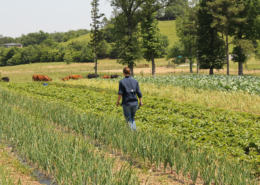 https://attra.ncat.org/wp-content/uploads/2023/06/woman-walking-field.jpg
1600
2400
NCAT IT
/wp-content/uploads/2022/06/ATTRAlogo_RGB-340x156.png
NCAT IT2023-06-07 16:51:382023-11-08 16:26:42Climate Primer
https://attra.ncat.org/wp-content/uploads/2023/06/woman-walking-field.jpg
1600
2400
NCAT IT
/wp-content/uploads/2022/06/ATTRAlogo_RGB-340x156.png
NCAT IT2023-06-07 16:51:382023-11-08 16:26:42Climate Primer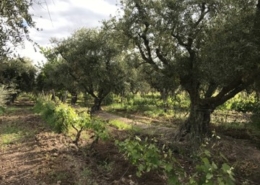 https://attra.ncat.org/wp-content/uploads/2023/06/alley-cropping.jpg
270
360
NCAT IT
/wp-content/uploads/2022/06/ATTRAlogo_RGB-340x156.png
NCAT IT2023-06-07 16:24:562023-09-07 07:40:48Climate Beneficial Practices
https://attra.ncat.org/wp-content/uploads/2023/06/alley-cropping.jpg
270
360
NCAT IT
/wp-content/uploads/2022/06/ATTRAlogo_RGB-340x156.png
NCAT IT2023-06-07 16:24:562023-09-07 07:40:48Climate Beneficial Practices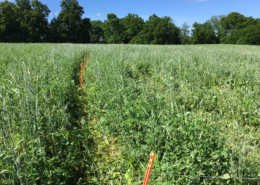 https://attra.ncat.org/wp-content/uploads/2023/05/fence-in-pasture-scaled.jpg
1920
2560
NCAT IT
/wp-content/uploads/2022/06/ATTRAlogo_RGB-340x156.png
NCAT IT2023-06-06 07:55:232024-03-27 12:23:00Weaning Pasture Soils Off Chemical Dependence
https://attra.ncat.org/wp-content/uploads/2023/05/fence-in-pasture-scaled.jpg
1920
2560
NCAT IT
/wp-content/uploads/2022/06/ATTRAlogo_RGB-340x156.png
NCAT IT2023-06-06 07:55:232024-03-27 12:23:00Weaning Pasture Soils Off Chemical Dependence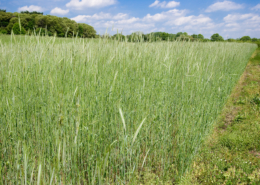 https://attra.ncat.org/wp-content/uploads/2022/09/cereal-rye-cover-crop-usda-scaled.jpg
1707
2560
NCAT IT
/wp-content/uploads/2022/06/ATTRAlogo_RGB-340x156.png
NCAT IT2023-05-17 12:58:522025-11-13 08:39:31Episode 304. Phosphorus and the Beauty of Biology
https://attra.ncat.org/wp-content/uploads/2022/09/cereal-rye-cover-crop-usda-scaled.jpg
1707
2560
NCAT IT
/wp-content/uploads/2022/06/ATTRAlogo_RGB-340x156.png
NCAT IT2023-05-17 12:58:522025-11-13 08:39:31Episode 304. Phosphorus and the Beauty of Biology  https://attra.ncat.org/wp-content/uploads/2023/03/image002.png
576
1024
NCAT IT
/wp-content/uploads/2022/06/ATTRAlogo_RGB-340x156.png
NCAT IT2023-03-28 10:41:262024-03-27 13:54:00Reflections on Growing Hope: Practical Tools for Our Changing Climate
https://attra.ncat.org/wp-content/uploads/2023/03/image002.png
576
1024
NCAT IT
/wp-content/uploads/2022/06/ATTRAlogo_RGB-340x156.png
NCAT IT2023-03-28 10:41:262024-03-27 13:54:00Reflections on Growing Hope: Practical Tools for Our Changing Climate https://attra.ncat.org/wp-content/uploads/2023/03/2023-Growing-Hope-Conference-Title-Card.jpg
1260
2240
NCAT IT
/wp-content/uploads/2022/06/ATTRAlogo_RGB-340x156.png
NCAT IT2023-03-03 09:47:042023-03-17 18:07:35WATCH Growing Hope: Climate and Soils
https://attra.ncat.org/wp-content/uploads/2023/03/2023-Growing-Hope-Conference-Title-Card.jpg
1260
2240
NCAT IT
/wp-content/uploads/2022/06/ATTRAlogo_RGB-340x156.png
NCAT IT2023-03-03 09:47:042023-03-17 18:07:35WATCH Growing Hope: Climate and Soils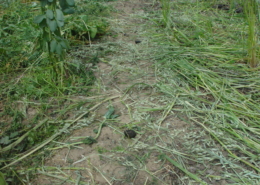 https://attra.ncat.org/wp-content/uploads/2022/11/Manure-1.jpg
1920
2560
NCAT IT
/wp-content/uploads/2022/06/ATTRAlogo_RGB-340x156.png
NCAT IT2022-11-17 14:43:072022-11-17 16:23:23Tipsheet: Manure in Organic Production Systems
https://attra.ncat.org/wp-content/uploads/2022/11/Manure-1.jpg
1920
2560
NCAT IT
/wp-content/uploads/2022/06/ATTRAlogo_RGB-340x156.png
NCAT IT2022-11-17 14:43:072022-11-17 16:23:23Tipsheet: Manure in Organic Production Systems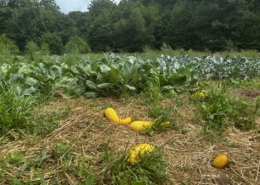 https://attra.ncat.org/wp-content/uploads/2022/10/squash-on-many-hands-organic-farm.jpeg
1536
2048
NCAT IT
/wp-content/uploads/2022/06/ATTRAlogo_RGB-340x156.png
NCAT IT2022-11-15 08:15:052024-03-27 14:31:35Feeding the World Part 2: A Tale of Two Worlds
https://attra.ncat.org/wp-content/uploads/2022/10/squash-on-many-hands-organic-farm.jpeg
1536
2048
NCAT IT
/wp-content/uploads/2022/06/ATTRAlogo_RGB-340x156.png
NCAT IT2022-11-15 08:15:052024-03-27 14:31:35Feeding the World Part 2: A Tale of Two Worlds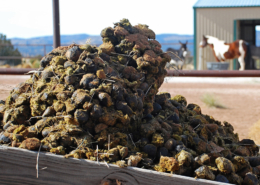 https://attra.ncat.org/wp-content/uploads/2022/11/Manure.jpg
704
1200
Amy Smith
/wp-content/uploads/2022/06/ATTRAlogo_RGB-340x156.png
Amy Smith2022-11-04 12:23:392022-11-04 12:23:39Manures for Organic Crop Production
https://attra.ncat.org/wp-content/uploads/2022/11/Manure.jpg
704
1200
Amy Smith
/wp-content/uploads/2022/06/ATTRAlogo_RGB-340x156.png
Amy Smith2022-11-04 12:23:392022-11-04 12:23:39Manures for Organic Crop Production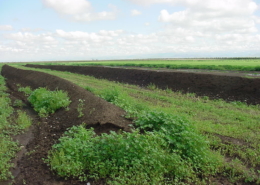 NCAT
https://attra.ncat.org/wp-content/uploads/2022/11/DairyMnrCompostWindrwSunViewVnyrdsAprl06.jpg
768
1024
NCAT IT
/wp-content/uploads/2022/06/ATTRAlogo_RGB-340x156.png
NCAT IT2022-11-03 11:48:262023-06-20 15:34:49Alternative Soil Amendments
NCAT
https://attra.ncat.org/wp-content/uploads/2022/11/DairyMnrCompostWindrwSunViewVnyrdsAprl06.jpg
768
1024
NCAT IT
/wp-content/uploads/2022/06/ATTRAlogo_RGB-340x156.png
NCAT IT2022-11-03 11:48:262023-06-20 15:34:49Alternative Soil Amendments https://attra.ncat.org/wp-content/uploads/2022/09/cow-and-calf-on-millet.jpg
1263
2048
NCAT IT
/wp-content/uploads/2022/06/ATTRAlogo_RGB-340x156.png
NCAT IT2022-09-28 10:23:002022-10-03 09:44:04Nutrient Management Plan (590) for Organic Systems
https://attra.ncat.org/wp-content/uploads/2022/09/cow-and-calf-on-millet.jpg
1263
2048
NCAT IT
/wp-content/uploads/2022/06/ATTRAlogo_RGB-340x156.png
NCAT IT2022-09-28 10:23:002022-10-03 09:44:04Nutrient Management Plan (590) for Organic Systems



